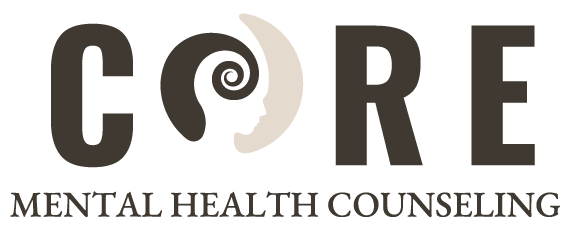The end of a year (and a decade) is a natural time to look back on what has happened in your life – good, bad, and everything in between. Usually, this reflection comes with the tendency to craft an over-arching “statement” about what that time was like for you. Sometimes we create a negative narrative and become eager to put the year in the rear view mirror. Cue the “this year was terrible” refrain. Time may have brought significant change, heartache, or loss to your life. Life events such as losing your job, death of a loved one or pet, or end of a relationship can spawn particularly dark views of the year in hindsight. It would be unfair and unrealistic to expect you to be fully positive about the past! So how do you gain some peace about what you have experienced and move forward into 2020 without lugging the baggage of the past? Here are some tips for exiting 2019 with grace and acceptance.
Take an inventory. Create a mental (or pen and paper) checklist of events that happened this year. Which events stand out as joyful moments? Focus on the details of these moments and your emotions while you relive them. Which events bring you gratitude?
Process the painful. Reflect on how you are coping in the present moment. If you tend to avoid painful emotions, constantly distract yourself from feeling them, or fall into patterns of blaming others, those feelings are likely to stay “stuck”, and carry over into 2020. Healthy ways of processing emotions include journaling, making art or music, connecting with others who have similar experiences (such as in a support group), or talking with friends, family, or a therapist.
Take care of yourself. If 2019 left you feeling exhausted or burned out, take time to recharge. Say “no” to a holiday gathering that stresses you out. Visit family briefly instead of for the whole week if that’s healthier for you. If you exercise routinely – keep it up! Healthy habits tend to fall by the wayside during busy times.
Look ahead. What would you like to accomplish in 2020? New Year’s resolutions are great, but we often set our goals high and skip making a plan for how we will achieve them. Imagine your goal is at the top of a staircase. What small steps can you take to reach your goal? How can you acknowledge each upward step? Keep in mind that it’s okay to take a step back. You can always move forward when you are ready.
Use balanced self-statements. Are you talking negatively to yourself? Time to reframe – acknowledge both the difficult part and the positive part. Instead of “This is too hard. I can’t do it,” adjust the thought to “This is hard, and I am doing my best.”
Finally, surround yourself with support. Now a great time to reflect on your relationships. Which ones are healthy, solid, and supportive? Which ones need some attention? Nurture these relationships. Which ones have become draining, unhealthy, or toxic? You have the power to change what no longer serves you.

